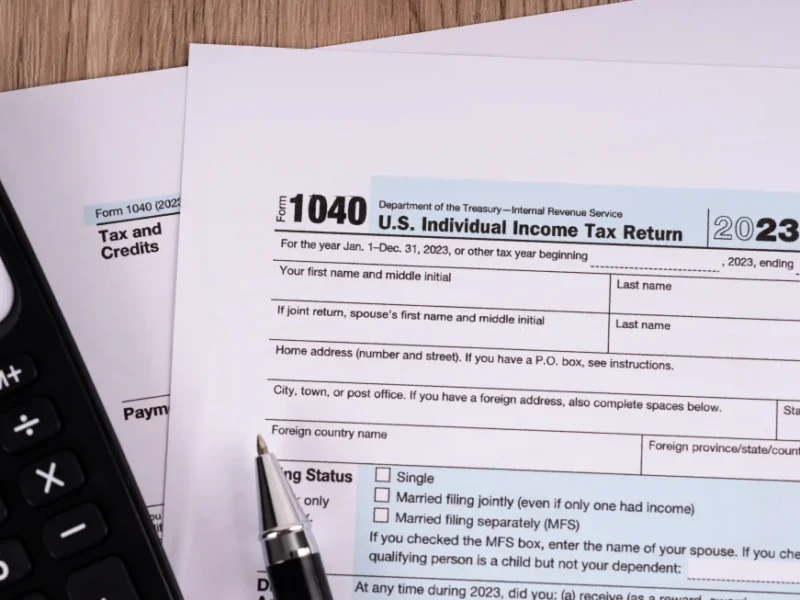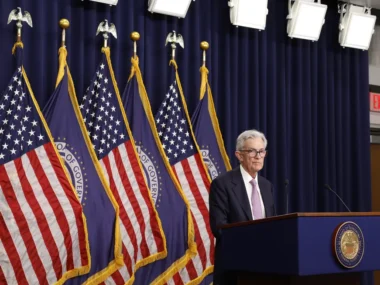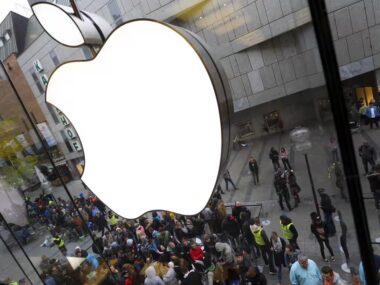Today marks Tax Day in the United States.
For many Americans, this means a rush to submit their paperwork on time, while others navigate the process of settling their dues or awaiting refunds from the IRS. In any case, the annual ritual of tax filing tends to induce stress.
According to a recent report from the National Taxpayers Union Foundation, taxpayers are anticipated to spend a whopping $104 billion in out-of-pocket expenses linked to tax preparation this year. Additionally, they’re expected to collectively invest around 6.55 billion hours preparing and organizing their documents to comply with tax regulations.
Bill Harris, former CEO of Turbotax and founding CEO of Paypal, remarked on the complexity of the U.S. tax system, labeling it as unique among developed nations. He emphasized the significant time and financial resources required for many individuals to navigate tax filing. Particularly for investors, who must report market earnings and losses to the IRS, the process can be especially daunting.
While Harris expressed a desire for substantial tax reform to simplify the system, he acknowledged the current reality. As an alternative approach, he shared three key tax strategies for investors.
Firstly, Harris advised maximizing contributions to employer-matched 401(k) plans, emphasizing the benefit of employer contributions as “free money.” Beyond this, he recommended strategic allocation of assets, suggesting that income-generating investments be held within tax-advantaged accounts like 401(k)s and Roth IRAs, while capital gains assets are held in taxable accounts. By doing so, investors can take advantage of lower capital gains tax rates.
Additionally, Harris highlighted the importance of periodically reviewing one’s stock portfolio to assess tax implications. Selling securities that have incurred losses can offset taxes on gains from successful investments, potentially reducing overall tax liability. However, he cautioned against violating the “wash sale” rule, which prohibits recognizing tax losses if the same security is repurchased within 30 days.
Lastly, Harris underscored the role of charitable giving in minimizing tax burdens. Donating highly appreciated securities can eliminate taxes on capital gains while benefiting charitable causes. Moreover, he mentioned tax-free gifting opportunities for parents, such as the annual tax-exempt allowance for giving to children.
In summary, Harris emphasized the importance of strategic tax planning and utilization of available tax-saving opportunities for investors.
Oil prices experience a decline, while gold sees an increase amid Israel’s deliberation over how to respond to Iran’s attack.
On Monday, oil prices saw a slight decline, contrasting with a rise in gold prices and a mixed performance in global stocks, all influenced by escalating tensions in the Middle East following Iran’s unprecedented attack on Israel, as reported by my colleagues Laura He and Anna Cooban.
Brent crude slipped below $90 per barrel, with US WTI crude also dropping by 1% to $84.50 by 4:46 a.m. ET, as traders awaited Israel’s next move.
Last Friday, oil prices surged to their highest levels since October in anticipation of potential retaliation by Tehran for an alleged Israeli strike on an Iranian diplomatic complex in Syria. US crude futures have seen an 18% increase this year, while Brent crude has surged over 16%.
In mid-morning trade, Europe’s benchmark Stoxx 600 index rose by 0.3%, with Germany’s DAX and France’s CAC 40 up 0.8% and 0.6% respectively. However, London’s FTSE 100 fell by 0.4%.
Hong Kong’s Hang Seng Index closed down by 0.7%, while Japan’s Nikkei 225 saw a 0.7% decline, and China’s Shanghai Composite Index closed 1.3% higher.
Gold prices were up by 0.3% at $2,349 per ounce on Monday, having reached an all-time high of $2,431 per ounce last Friday due to concerns over potential Iranian attacks on Israel. Bullion has surged nearly 14% so far this year.
The International Energy Agency, based in Paris, noted on Monday that Iran’s recent air attacks on Israeli military facilities heightened the risk of increased oil market volatility, emphasizing the importance of oil security.
Analysts at ANZ suggested in a research report that the attack could raise worries about potential disruptions to global oil supply, with the extent of the risk likely dependent on Israel’s government response.
Israel’s war cabinet convened for several hours on Sunday to discuss its reaction and was scheduled to reconvene at 7 a.m. ET on Monday, according to an Israeli official cited by CNN.
Google has taken down links to news sites in California, citing a proposed state law that would mandate payment to publishers.
Google has announced its decision to remove links to California news websites in response to proposed state legislation that would require major tech companies to compensate news outlets for their content. The company clarified in a blog post on Friday that this action is considered a “test” affecting only a small portion of California users, aimed at assessing the impact of the legislation on Google’s product experience.
The proposed California Journalism Preservation Act, introduced in March 2023 and pending a hearing by the state’s Senate Judiciary Committee, mandates digital platforms like Google and Meta to pay a “journalism usage fee” to eligible news outlets for using their content alongside digital advertisements.
In response to Google’s move, California State Senate President Pro-Tempore Mike McGuire, a co-author of the bill, denounced it as “bullying” and an “abuse of power.” He expressed concerns about the potential impact on public safety, emphasizing the role of news in providing critical information during emergencies.
Advocates for the legislation argue that tech giants profit from sharing content from smaller and local news publishers without adequately compensating them for their contributions.











